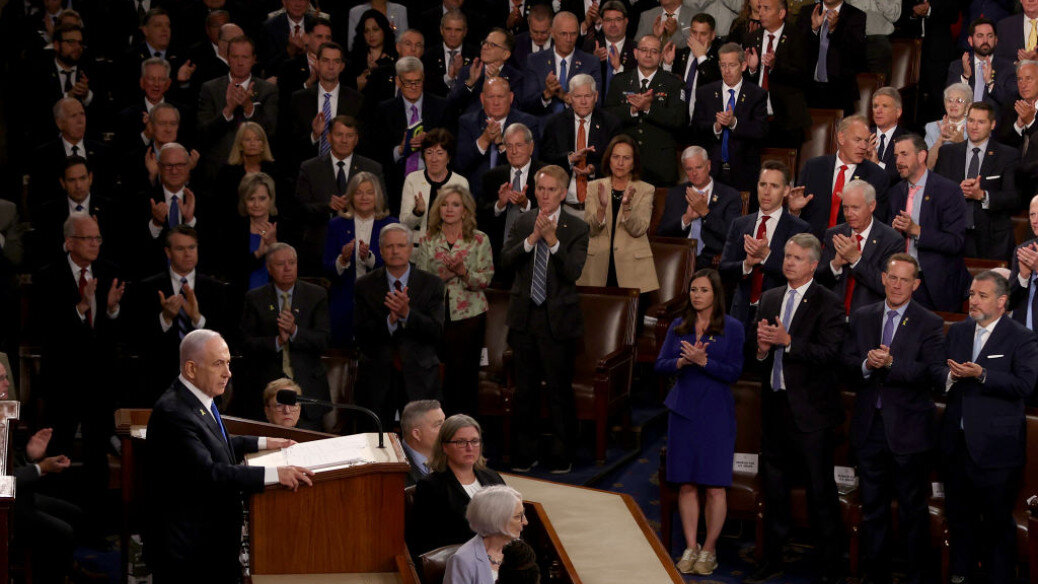US Senate Strongly Rejects Effort to Halt Arms Sales to Israel: A Show of Support
The recent decision by the US Senate to reject attempts to block $8.8 billion in arms sales to Israel has sparked significant debate over human rights and military support. Amid the ongoing humanitarian crisis in Gaza, this legislative move raises questions about the balance between national security and the protection of civilians. The Senate’s overwhelming votes of 82-15 and 83-15 against two resolutions proposed by Senator Bernie Sanders highlight the complexities surrounding US-Israel relations and the implications for Palestinian civilians.
The resolutions aimed to halt the sale of substantial military equipment, including massive bombs, amid concerns for the humanitarian situation in Gaza. Senator Sanders, an independent aligned with the Democratic party, has been vocal about the dire conditions faced by civilians, particularly children experiencing malnutrition and starvation due to the blockade of humanitarian aid. He emphasized, “What is happening right now is unthinkable. Today it is 31 days and counting with absolutely no humanitarian aid getting into Gaza, nothing. No food, no water, no medicine, no fuel, for over a month.”
In light of the humanitarian crisis, it is crucial to understand the implications of the Senate’s decision:
- Bipartisan Support for Israel: A long-standing tradition of strong bipartisan support for Israel in Congress makes it difficult for resolutions aimed at stopping arms sales to succeed.
- Humanitarian Concerns: The ongoing humanitarian crisis in Gaza, exacerbated by the blockade, raises ethical questions about military support amid civilian suffering.
- Political Dynamics: Senator Tammy Baldwin of Wisconsin chose to vote “present,” indicating a nuanced position amid the political landscape.
- Foreign Relations Considerations: Senate Foreign Relations Committee Chairman James Risch argued against the resolutions, stating they would “abandon Israel, our closest ally in the Middle East, during a pivotal moment for global security.”
The backdrop of these developments is marked by significant displacement in Gaza, with hundreds of thousands of residents seeking shelter as Israeli forces advance into Rafah, part of a newly designated “security zone.” This mass displacement represents one of the largest movements of people during the ongoing conflict.
Historically, resolutions like those proposed by Sanders have faced challenges. For instance, in November, the Senate overwhelmingly voted against three similar resolutions aimed at halting arms transfers approved by then-President Joe Biden. Progressive critics have voiced concerns that Biden’s administration is not doing enough to address the worsening conditions for Palestinians in Gaza.
Former President Donald Trump, who resumed office on January 20, has taken a strong pro-Israel stance, reversing Biden’s attempts to impose limits on arms sales to Israel. Trump’s administration has also suggested controversial ideas such as relocating Palestinians from Gaza to transform the area into “the Riviera of the Middle East.” Earlier this year, he bypassed the congressional review process to authorize billions in military sales to Israel, further complicating the already tense situation.
According to US law, Congress holds the authority to review significant foreign weapons sales and can block them by passing resolutions of disapproval. However, no resolution has successfully passed through Congress and survived a presidential veto. When such resolutions are filed, they require a Senate vote, which can lead to contentious debates that have historically embarrassed sitting presidents.
The implications of the Senate’s rejection of these resolutions extend beyond immediate military sales. The support for Israel amid a humanitarian crisis reflects the ongoing complexities of US foreign policy in the Middle East. As the situation in Gaza continues to unfold, it raises critical questions about the responsibilities of powerful nations in addressing human rights concerns while maintaining strategic alliances.
In conclusion, the Senate’s recent votes underscore the ongoing tension between military support for allies and the pressing need for humanitarian aid in conflict zones. As discussions around the arms sales continue, the plight of civilians in Gaza remains a pressing issue that demands attention from lawmakers and the international community alike.






